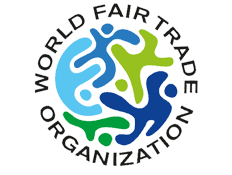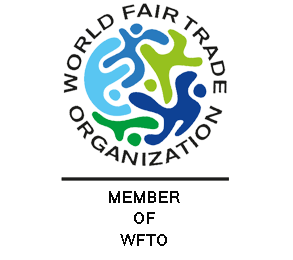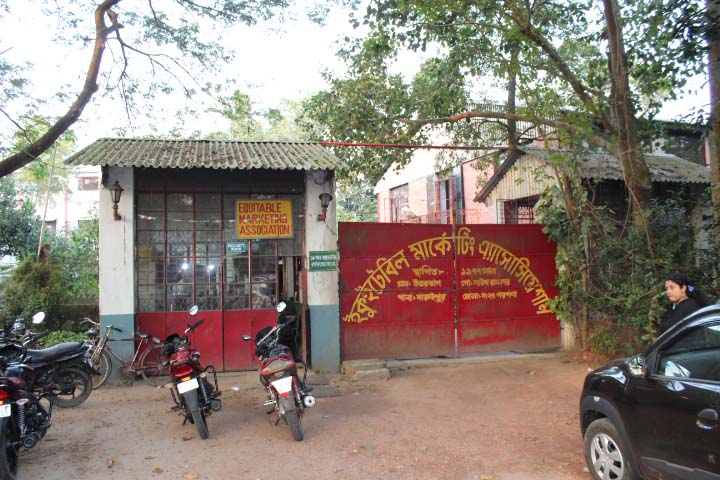



Our producers comprise poor artisans, farmers, craftspersons, weavers, women and small producers for whom survival is an ongoing battle. Equitable Marketing Association (EMA) places the products made by these artisans from villages and small towns on an international platform. The Silk Scarves, Leather items, Musical Instruments, Candles and Incense Sticks are produced at our Development Centre and other products are procured from various producer partners and Cooperatives like horn, wood, papier mache, stone, etc.
Our producer group for Wooden Articles and Toys was situated at Saharanpur (UP), which has been a base for all kinds of wooden articles for decades in India. However, we have had to stop production of our Wooden Items in Saharanpur, as the group was blacklisted for internal reasons. Also because Saharanpur mainly used Sesame wood for production, which has been banned in that particular area by the Supreme Court. EMA, for environmental and ecological reasons, decided to shift to faster growing woods.
For the past three years, our Wooden products are being made by a Cooperative whose artisans are well versed in the usage of wood as it is one of their main raw materials in making brushes. Many fast growing woods like Karamphalla, Bamboo, Eucalyptus, etc. are available in Bengal.
As far as the wood is concerned, EMA is also looking for more alternatives. We are at present using Karamphalla (from Sundarbans), Eucalyptus and Haldoo wood for our products. The process of transfer from Sesame to other wood started three years ago and we have been successful with that necessary change.
The exquisitely beautiful and hand-painted papier mache articles are made by a family in Srinagar, Kashmir and this group was formed about 55 years ago. EMA started working with this group some 20 years ago. Like all producer groups, they get a big advantage working with EMA by receiving advances against orders and prompt payments.
A small village situated in the Midnapore district of West Bengal has been synonymous with horn products for the last two centuries. The formation of our Cooperative in 1953 has helped to strengthen the industry. The dedicated efforts of a village craftsman who founded this Cooperative, led the Cooperative to gradually organise and consolidate the scattered efforts of the families involved in the horn trade. This skill, which initially existed in this village for combs, later spread among other villages during the agricultural off-season as an alternative source of income. The Cooperative which began with 10 members, today spreads over a handful of villages with 83 general members and 200 families involved in this trade.
The aim of EMA, as a Fair Trade Organisation, has been to help the economically challenged sections of society. As a step towards assisting the minority or the marginalised sections, the manufacturing of Musical Instruments started in the Development Centre of EMA in December 2001, with three or four workers. At present, they are eight in number, all from the minority community.
All the Musical Instruments are developed by the artisans at our Development Centre located at Baruipur. The artisans are from remote villages and even from other states. Besides salary and employee benefits, they are also provided with food and lodging.


Nestled in the sylvan surroundings of Village Uttarbhag, in South Ramnagar, Baruipur is EMA Development Centre. That is some 40 km from central Kolkata, West Bengal.
The campus is sprawled over a 7-acre area, and stands with a quiet pride as a symbol of creative talent and dignity of labour.